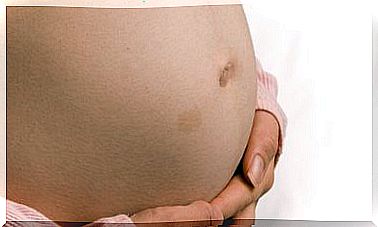How Often Should You Feel Your Baby During Pregnancy?

One of the best experiences you can have as a woman is when you can feel your baby moving in your stomach. Therefore, many mothers wonder how often or how much they should feel the baby move.
How often you feel fetal movements during the day is important information for the midwife.
You do not have to be on the alert all day, but keeping a little track of how often you can feel your baby can give your midwife information about how your baby is feeling.
Knowing your baby: The movements develop as your pregnancy progresses
In the beginning of pregnancy, the expectant mother feels nothing at all. In the following weeks, you may feel some very light movements that occur very irregularly.
As your pregnancy approaches halfway through, your movements will increase. During your last trimester, you will probably feel the movements several times an hour.
It will depend on the time of day as well as on your child’s individual behavior and rhythm.
There will be times when the child is more active and others when he or she is obviously asleep or resting.
So remember that it is normal not to feel your baby kicking or moving for a few hours every day.

Keep track of your daily movements
Specialists often recommend that mothers keep track of the times when they feel the baby in the womb.
That way , you can be sure that everything is right and also learn his or her movement patterns.
This does not mean that you have to write down every single time you sense a movement. Instead , you can calculate an approximate amount of time that elapses between one movement sequence and another.
Each child has their own peculiarities. The time of day is another factor. In general, babies are most active between 9 in the evening and 1 in the morning.
Why is it important to talk about frequency with your midwife?
It is important that your midwife is aware of how often your baby moves.
This is especially important during the last weeks of pregnancy when the fetal movements are more noticeable and relevant. A lack of fetal activity for a long time can be a sign that something is not right.
When the baby is almost fully developed and near the end of the pregnancy, there is a risk that he or she may become entangled in the umbilical cord, which can lead to strangulation.
Sometimes babies can also stop moving to ensure their survival. When this happens, doctors almost always order an emergency caesarean section.
Therefore, we recommend that you pay attention to the little one’s routine during your pregnancy. If you notice any changes in rhythm, it may be a sign that something is wrong and then you should seek medical attention.

Some tips to keep track of your baby’s movements
It is important that you keep track of your baby’s movements properly. The goal is to become aware of them and to be able to feel them objectively.
We recommend that you lie down in your bed on the left side of your body. The best time to do this is shortly after consuming one of your daily meals.
The idea behind it is to check how long it takes for the child to make 10 movements.
If you do this every day, you will get a good feel for your little one’s frequency of movement. It will help you feel if something is not right.
So, how often should you feel your baby while you are pregnant?
Babies can perform around 40 different noticeable movements in the mother’s womb.
These can consist of the baby stretching on arms or legs, swimming or performing other movements. Blows, pushes and kicks are also on the list.
Many of these actions are the baby’s reaction to external sounds or the mother’s movements.
They may also react to certain foods that the mother eats that make the baby more active. This is the case, for example, with sugar.
Monitoring your baby’s movements several times a day during your pregnancy can save lives if a complication occurs. This is especially important from week 28 onwards.
If you have any doubts, contact your midwife or gynecologist immediately instead of becoming anxious and worried.









